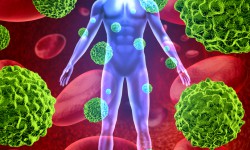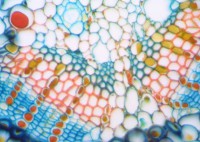
Today’s array of immunotherapy treatments are offering cancer victims something they’ve been robbed of for some time– a fighting chance. Read on to discover more about super-survivors and the treatments that are not only putting immunotherapy in the spotlight, but transforming the future of cancer treatment.
Super-survivor stats:
- Joseph Rick
Rick’s advanced melanoma metastasized throughout his body. Years of the side effects of chemo and radiation left a lasting impression, but did not cure his cancer. When doctors gave up hope, Rick turned to a trial vaccine immunotherapy. A year later his tumors had shrunk 50 percent, and after three years he experienced remission.
- Tom Telford
A tumor on Telford’s small intestine spread to his liver and kidneys following surgery and chemo, however Telford is still alive nine years later following treatment with immunotherapy.
- Richard Logan
Logan’s skin melanoma metastasized to his lung and liver. His cancer has been stabilized five years following treatment with checkpoint inhibitors, a form of immunotherapy.
Treating the immune system, not cancer:
Harnessing the power of the immune system, immunotherapy is charting new territory. It offers a chance at long-term survival, particularly in advanced cancers, with developments in treatment technology such as:
- Checkpoint inhibitors
Certain immune system components can prevent immune system warriors, T-cells, from attacking tumors. Checkpoint inhibitors block these components, putting T-cells back in the fight.
- T-cell therapy
This therapy involves genetically modifying certain T-cells outside the body, creating “CAR T cells”, which are then re-infused back into the body to attack targets on the surface of cancer cells.
- And many more therapies both in use and under investigation.
Want to be a super-survivor? Contact Issels® today.





